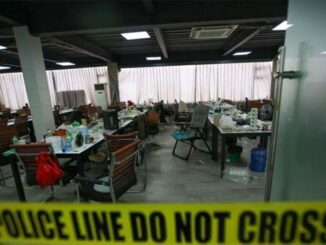
MANILA, Philippines — Saying e-sabong is worse than Philippine offshore gaming operators, senators are opposing proposals to revive online cockfighting to make up for the forgone revenues due to the ban on POGOs.
Sen. Joel Villanueva yesterday said e-sabong is far worse than POGOs, as it directly targets all kinds of Filipinos, and with 34 online cockfighting aficionados missing since 2022 and believed to have been murdered.
Villanueva earlier filed Senate Bill 1281, seeking to prohibit all forms of online gambling in the country, as Philippine Amusement and Gaming Corp. (PAGCOR) officials raised the possibility of implementing better e-sabong or online sabong operations.
“We have just defeated an enemy with the POGO ban, and now some are considering resurrecting e-sabong, which is far worse because it directly targets our kababayans from all walks of life,” Villanueva said. “While we badly need revenues, the choice should not be between the devil and the deep blue sea. We want our revenues coming from legitimate, legal, and sustainable sources.”
“No matter how you look at it, the social costs of gambling overshadow the intended benefits,” he said.
Sen. Imee Marcos has opposed the proposed revival of online cockfighting. “I was really surprised. E-sabong is gone. Pogo is gone, and suddenly there’s remote sabong again. We need to stop this.”
During a public hearing at the House of Representatives, PAGCOR chairperson Al Tengco believes that the agency can implement better e-sabong operations, an initiative that generated over P6 billion in revenues a year before it was banned during the Duterte administration.
Tengco made the response after Agusan del Sur Rep. Alfelito Bascug asked him in a hearing if the agency is still considering reviving e-sabong after it was stopped, until a better set of framework and regulations are formulated.
The Senate committee on public order investigated the case of the 34 missing sabungeros in 2022, but failed to establish their whereabouts.
Villanueva also called on law enforcement agencies, including the Presidential Anti-Organized Crime Commission, to apply the same rigorous measures against e-sabong as they have with POGOs to prevent its resurgence.
Even during the height of their operations, the senator said POGOs did not prove to be a viable solution to the government’s revenue needs, as collections accounted for only a small portion of taxes.
Similarly, prior to the e-sabong ban in May 2022, the Bureau of Internal Revenue (BIR) reminded operators to pay their tax obligations after a Senate inquiry found them earning billions from online “talpak” or betting.
The BIR and PAGCOR also failed to withhold the 20 percent tax from the winnings of online sabong operators since virtual cockfighting began in 2020.
In a separate Senate hearing in February 2024, PAGCOR admitted that e-sabong continues despite the prohibition. It was also found during the hearing that 789 e-sabong operations are still active, defying the ban.
“Similar to POGOs, e-sabong has brought social costs – worse, it destroys Filipino families, plunges individuals into severe debt, and even forces some to commit theft and crimes to fund their gambling habits,” Villanueva said.
“We cannot simply turn a blind eye to the suffering of our people who have become victims of the pitfalls of gambling. Money should not be our only consideration; the welfare of our people must come first,” he said.





Be the first to comment